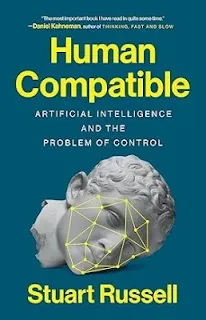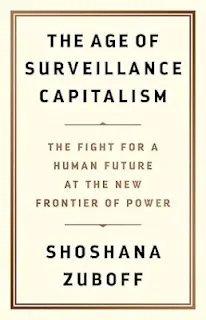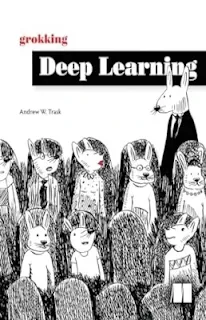In the continuously evolving era of technology, staying informed and updated is not just an advantage — but a necessity. Whether you’re a seasoned developer, a curious entrepreneur, or simply someone fascinated by the digital world, these carefully chosen books offer insights, inspiration, and practical knowledge that help you step forward.
Here's a chosen list of Top 10 Must-Read Tech Books for 2024 that cover a wide array of emerging technologies, coding, AI, and general tech trends, perfect for both professionals and enthusiasts:
1. AI 2041: Ten Visions for Our Future
"AI 2041: Ten Visions for Our Future" by Kai-Fu Lee and Chen Qiufan
explores how artificial intelligence will transform daily life within the
next two decades. Through ten compelling short stories, this book offers a
glimpse into a world reshaped by AI, from advancements in medicine and
education to new communication forms. While AI promises unprecedented growth
and innovation, it also poses risks, like autonomous weapons and technology
that can carry human biases. Blending fiction with expert insights, AI 2041
is a wake-up call to both the possibilities and perils of our AI-driven
future.
Why Read: This offers a visionary yet grounded look at AI’s future,
great for those interested in understanding where AI is headed in practical
terms.
Author - Kai-Fu Lee (Author), Chen Qiufan (Author)
Amazon Link - AI-2041-Ten-Visions-Future-ebook
2. The Metaverse: And How It Will Revolutionize Everything
The Metaverse: And How It Will Revolutionize Everything by Matthew Ball
is the ultimate guide to understanding the next evolution of the internet.
This bestseller explores the concept of the metaverse—an interconnected
network of 3D virtual worlds that will transform how we live, work, and
interact online. From gaming platforms like Fortnite and Roblox to futuristic
applications in healthcare, education, and finance, Ball explains the
technologies and innovations driving the metaverse forward. Perfect for tech
enthusiasts and business leaders, this book breaks down the metaverse’s impact
on society, the economy, and our digital future.
Why Read: A comprehensive guide to one of the most significant emerging
tech trends, helping you navigate what’s coming next in virtual reality and
digital economies.
Author - Matthew Ball
Amazon link -
Metaverse-How-Will-Revolutionize-Everything-ebook
3. Quantum Computing: An Applied Approach
"Quantum Computing: An Applied Approach" by Jack D. Hidary is a
comprehensive guide that combines the foundations of quantum computing with
hands-on coding techniques. This book is perfect for academic courses and
corporate training, offering a deep dive into quantum circuits, algorithms,
and the essential mathematical tools needed for mastering the field. Split
into three parts, it covers everything from quantum computing basics to
advanced coding examples, with additional resources like operator tables and
a GitHub repository.
Endorsed by Eric Schmidt, the book is a must-read for tech leaders,
engineers, and students eager to explore this game-changing technology.
Why Read: Quantum computing is poised to disrupt tech as we know it.
This book helps demystify the concepts and gets you up to speed on this
game-changing technology.
Author - Jack D. Hidary
Amazon Link -
Quantum-Computing-Approach-Jack-Hidary
4. Human Compatible: Artificial Intelligence and the Problem of Control
Why Read: Essential for anyone involved in AI or interested in its
ethical and existential challenges, this is a thought-provoking deep dive
into AI alignment.
Author - by Stuart Russell
Amazon Link -
Human-Compatible-Artificial-Intelligence-Problem
5. Code: The Hidden Language of Computer Hardware and Software
"Code: The Hidden Language of Computer Hardware and Software" by Charles Petzold is a timeless guide that unravels the mysteries of how computers work, from the basic bits to complex systems. Updated for the modern age, this expanded edition delves into the inner workings of CPUs, registers, control signals, and more, explaining how everyday devices function. With new chapters and interactive graphics, Petzold makes complex concepts accessible, using analogies like flashlights and seesaws to illustrate how humans have shaped the digital revolution. A must-read for tech enthusiasts, students, and anyone curious about the magic behind modern technology.
Why Read: Perfect for coders, engineers, or enthusiasts who want a
clear understanding of how computers really work at their core.
6. AI Superpowers: China, Silicon Valley, and the New World Order
Reading books is a kind of enjoyment. Reading books is a good habit. We bring you a different kind of books. You can carry this book wherever you want. It is easy to carry. It can be an ideal gift to yourself and to your loved ones. Care instruction keep away from fire.
Why Read: A vital read for tech entrepreneurs and
professionals wanting to understand the geopolitical race for AI
dominance.
Author - Kai-Fu Lee
Amazon Link-
AI-Superpowers-China-Silicon-Valley
7. The Age of Surveillance Capitalism
A seminal work on how big tech companies are shaping the future through
data collection and behavioral modification, this book exposes the
consequences of living in a world where our data is the most valuable
asset
Why Read: Important for anyone working in tech who wants to
understand the ethics and impact of data, privacy, and capitalism.
Author - Shoshana Zuboff
Amazon Link -
Age-Surveillance-Capitalism-Future-Frontier-ebook
8. Rust Programming By Example
Why Read: As performance, memory safety, and concurrency become
more critical, Rust is emerging as a go-to language. This book gets you
started quickly with practical examples.
Author - Guillaume Gomez and Antoni Boucher
Amazon Link -
Rust-Programming-Example-concurrent-applications
9. Hacking the Future: Privacy, Identity, and Anonymity on the Web
Identity Wars is a broad look at how anonymity influences politics,
activism, religion, and art. Stryker presents a strong defense of anonymity
and explores some of the tools and organizations relating to this issue,
especially as it has evolved with the ubiquity of the Internet. Cogent and
compelling, his examination of online identities, both false and real, is an
essential read for the social-networking age.
Why Read: In a world increasingly concerned about cybersecurity and
privacy, understanding these topics is essential for tech professionals.
Author - Cole Stryker
Amazon Link -
Hacking-Future-Privacy-Identity-Anonymity
10. Grokking Deep Learning
"Grokking Deep Learning" by Andrew Trask is an in-depth guide that
teaches you to build deep learning neural networks from scratch using
Python and NumPy. The book breaks down the science behind neural networks,
showing how deep learning powers modern technologies like self-driving
cars, virtual assistants, and text translation. With a hands-on approach,
you’ll learn how to train networks to recognize images, translate text,
and even write like Shakespeare. Designed for readers with basic math and
programming skills, this book covers essential concepts like forward
propagation, gradient descent, backpropagation, and federated learning,
preparing you to advance into deep learning frameworks.
Why Read: If you're diving into AI, this book offers a gentle
introduction to deep learning, which is foundational to many modern AI
applications.
Author - Andrew Trask











Comments
Post a Comment